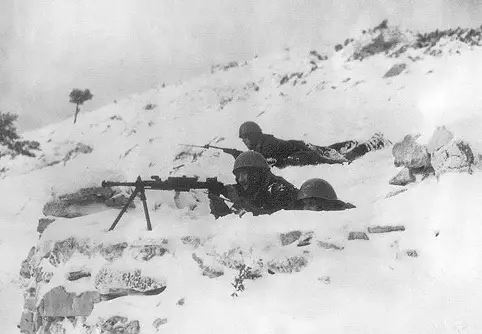
How a mix of personal ambitions, misinformation and overconfidence put in motion one of the most ill-fated military campaigns in recent history.
The situation in the summer of 1940
When declaring war on France and Britain on the 10th of June 1940, Mussolini and most of the ruling elite believed that the war would have ended soon. In their minds, after the fall of France, which occurred between the 22nd and 25th of June, Britain would have come to terms and sued for peace. Although the armed forces were not ready to wage a total war after the expensive endeavours in Ethiopia and Spain, Mussolini rushed the country into war with this idea in mind: “We have to be ready to get our fair share of loot” (from Ciano’s diary, 22nd of August 1939).
This quote, reported by Ciano, is of great importance because shows how Mussolini used to think. Always chasing glory, prestige, new pieces of land, with no regards to the means necessary to get it nor the consequences on the military or economic side. Mussolini was a skilled politician, but grand strategy and military affairs were an unknown matter to him. Besides, he had started to suffer from the successes of Nazi Germany, perceiving and witnessing the superiority of his ally but never admitting it (yet). Every German gain or victory on the field was seen by Mussolini as an indirect hit to his prestige, progressively overshadowing him within the Axis pact.
With Britain showing absolutely no willingness to come to peace terms, Mussolini needed an urgent victory [1], something that (in his own words) “would have rebalanced the situation”. The planned offensive in North Africa was set to start in September but it did not look like an easy endeavor given the evident logistical problems. Since a quicker and easier victory was required, the attention then shifted eastwards on Yugoslavia and Greece.
Prologue and protagonists of the tragedy
The aggressive foreign policy of the fascist regime in the 30s led to the incorporation of Albania in the kingdom of Italy in April 1939. This endeavour was extensively sponsored by Galeazzo Ciano, foreign minister of Italy, son-in-law of Mussolini, and an extremely rich man always eager to acquire new power, wealth and influence. Ciano was among the less enthusiastic people regarding the alliance with Nazi Germany, but he was nevertheless supportive of the war, especially of an independent and “parallel” war that would have produced a significant gain (especially for him).
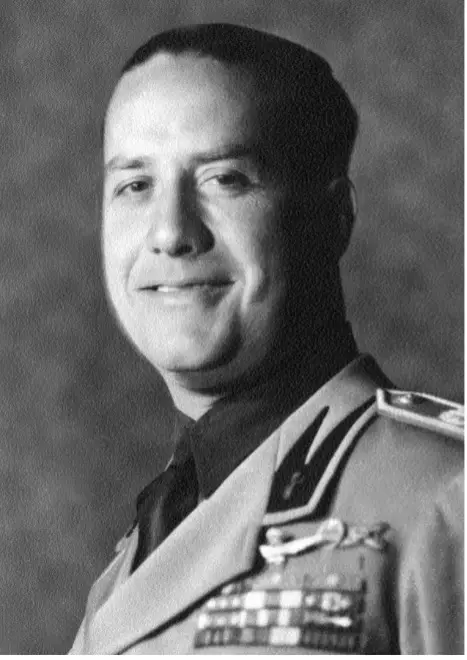
Figure 1 Galeazzo Ciano
Another important figure in our story is Francesco Jacomoni, the Italian ambassador in Albania until 1939 and, after the occupation, lieutenant-general of the King in Albania. Since he was appointed Ambassador, Jacomoni worked with Ciano on the progressive incorporation of Albania in the Italian sphere of influence and, from 1938 he started to work on the idea to annex Albania, just like Hitler did with Austria (from Ciano’s diary, 26th of March 1938). Already in May 1938, Ciano and Jacomoni convinced Mussolini of the action in Albania and its assured success.
When Italy entered the war in June 1940, the idea of a “parallel war” had already started to conquer many fascists like Ciano but most of all Mussolini, always concerned about gaining “his fair share of loot”. Eyes set on Tunisia, Corsica, Yugoslavia and Greece. The first two were discarded when Hitler decided to preserve the (reduced) territorial integrity of France, by accepting the Vichy regime, in the attempt to ensure the “neutrality” of the French colonial empire.
The attention shifted to the Balkans and on the 12th of August 1940, during a high-level meeting in Rome, Mussolini traced the guidelines for an operation against Greece, scheduled to start in late September. The meeting was attended by Ciano, Jacomoni and Army Corp general Sebastiano Visconti Prasca, another protagonist of this story. Visconti Prasca was close to Ciano [3], it was in fact the foreign minister who had suggested his appointment to Mussolini as chief of the Italian forces in Albania (May 1940). It is strange and interesting to underline that the guidelines for an invasion of Greece were discussed in a meeting with only political leaders and “just” an Army Corp commander, with no other army, navy, air force expert or high-level commanders.
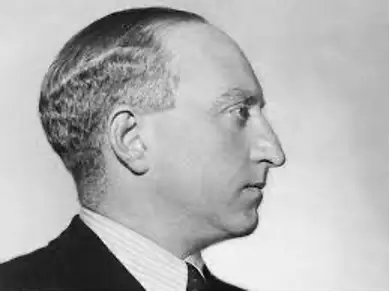
Figure 2 Francesco Jacomoni
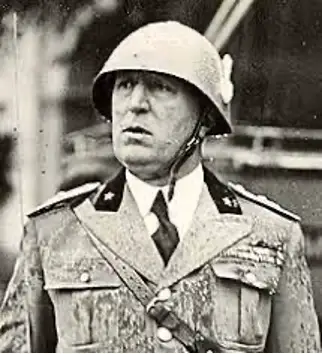
Figure 3 Sebastiano Visconti Prasca
Ciano and Jacomoni assured Mussolini (presenting no real evidence)[4], that Greece was easy prey, the government was weak, the army in bad shape with commanders inclined to receive bribes. They claimed that the population in Chameria (the coastal area of Epirus, part of Greece, but inhabited by Albanians) was ready to rise against the Greek regime and welcome the Italian “liberators”. Visconti Prasca then assured Mussolini that the armed forces in Albania would have granted a successful occupation of the Epirus valley (with landings in Preveza) covered by an advance through the Pindus mountains towards Coryza and Ioannina.
Such operation would have required 10 divisions at full complement and was based on the (huge) assumption that Greece would have opposed almost no resistance. The three men also claimed that that the Greek government and the state machine would have collapsed soon after the invasion. The full occupation of Greece would have followed in a second moment, requiring a total of 20 divisions (according to an older plan drafted in 1939 by General Alfredo Guzzoni). This attack plan was named “Emergenza G”.
It is impressive how such an operation was based on a huge amount of false or flawed information and how the reports coming from Ambassador Grazzi in Athens and from the military information service, stating that Greece was ready and willing to fight, were completely ignored. In his book, Mario Cervi claims that this was possible thanks to a combination of beliefs and factors which affected Italian decision-makers, namely: underestimation of the enemy, overestimation of army capabilities, hurry, opportunism, general misinformation on the status of the army, willingness to achieve personal gains, little understanding of military affairs, little regards for adverse opinions.
Escalation, de-escalation, a new escalation
A few days later the meeting in Rome, on the 15th of August 1940 an “unknown” submarine torpedoed and sunk the old Greek cruiser Helli while at anchor near the island of Tinos. The ship and the crew were taking part in religious celebrations on the island. Helli was hit to the boiler room by a torpedo and quickly sank. To avoid further escalation, Greek authorities officially declared that the Helli was sunk by an “unknown” submarine, but public opinion had little doubt that the old ship was sunk by an Italian unit. It was indeed the Italian submarine Delfino which delivered the fatal hit. The commander of the submarine was instructed to do so by Cesare Maria De Vecchi, governor of the Dodecanese islands in the Aegean (under Italian rule) and a strong sponsor of the invasion of Greece. The sinking of the Helli extensively outraged the Greek public opinion and surely contributed to increasing the nation’s willingness to resist and react to foreign aggression, fading away any possible element of surprise that could have helped the Italian invasion.
On the 17th of august, the Italian ambassador in Berlin, Dino Alfieri, reported to Ciano and Mussolini a long discussion that he held with Ribbentrop. From the discussion emerged that Germany was against any action that could have sparked troubles and conflicts in the Balkan region, specifically warning against hostile actions towards Yugoslavia and Greece. Ribbentrop (and Hitler through him) re-affirmed that Great Britain was the main enemy and that all war efforts should have devoted to that direction. Once received the German “Nein”, Mussolini accepted such a point of view and decided to abandon the idea of attacking Greece.
The foreign minister wrote in his memoirs that the Duce himself, always afflicted by a great degree of indecision, drafted the official reply to Berlin. Interesting to underline, on the same day Ciano met the press officer of the German Embassy at the seaside. The officer extensively spoke about the upcoming landings in Britain and that the war would have been over by the end of September.
For the time being, the plan “Emergenza G” remained just a piece of paper in the shelves of the Supreme Command until the turning point of our story, which came on the 11th of October 1940. On that day Mussolini received news that Romania had requested a military mission from Germany and that Luftwaffe fighters had been deployed in defence of the Ploesti oil fields. This new act of German primacy in the Axis pact infuriated Mussolini like never before (he hoped for a while that Romania would have requested Italy’s protection). On the 12th of October, Ciano reported in his diary these quotes from Mussolini:
“Hitler always faces me with a fait accompli. This time I am going to pay him back in his own coin. He will find out from the press that I have occupied Greece. In this way, the equilibrium will be re-established”
Ciano asks then if the Duce has an agreement with Marshall Badoglio (Chief of Staff of the armed forces) regarding the (renewed) invasion. Mussolini replies:
“Not yet […] but I shall send in my resignation as an Italian if anyone objects to fighting the Greeks[5]”.
Then Ciano writes “The Duce seems determined to act now. In fact, I believe that the military operation will be useful and easy”.
From these quotes and from the events that followed, you can see how the campaign against Greece was initiated because of Mussolini’s anger, fuelled by the over-optimistic reports from Ciano and his men (Jacomoni and Visconti Prasca above all).
The fatal meeting
On the 14th of October, the Duce set the 26th (only 12 days later) as the starting date of the operation, this decision came in a context where Italy was already overstretching. The Regia Marina (the navy) was busy in supplying Graziani’s troops in Libya and the forces in Albani. The Regia Aeronautica (the air force) was completing the deployment of an Air Corp in Belgium, tasked to help the Germans in the (already lost) Battle of Britain.
Not all the responsible military leaders were aware or fully informed of Mussolini’s new pivot and only on the 15th of October a high-level meeting was held in Rome[6]. The participants were: Mussolini, Ciano, Marshall Badoglio (Armed Forces Chief of Staff), Mario Roatta (deputy chief of staff of the army), Ubaldo Soddu (Undersecretary of war), Jacomoni and Visconti Prasca.
Even this time no navy or air force representatives were summoned to the meeting. Mussolini was in hurry, he wanted to pay Hitler back in his own coin, and feared another German “Nein” to his ambitions. For these reasons, he brought back to the table the plan “Emergenza G” prepared by Visconti Prasca in August.
According to this plan, the forces available in Albania would have ensured the quick occupation of the Epirus valley. He also assured that Yugoslavia would have remained neutral and he pledged to invite Bulgaria to join the attack (receiving in exchange a piece of eastern Macedonia and its access to the sea). Jacomoni and Ciano spoke after him, stating that the Greek morale was weak, and the population would have been indifferent to an Italian invasion.
The meeting moved then to the military aspect and Visconti Prasca claimed that everything was ready, army morale was high and in 15 days he would have defeated the Greeks in the Epirus valley (he believed the greek forces amounted to 30.000 men, but they were already more than 40.000). The euphoric general stated that after conquering Epirus and the strategic port of Preveza, the arrival of new reinforcements would have allowed the march towards Athens. Then, Marshal Badoglio took the floor, affirming that only the full occupation of Greece would have justified the whole endeavour. For such operation, no less than 20 divisions were required while only 9 were present back then in Albania and 3 more months were necessary for an appropriate build-up. Visconti Prasca counterargued and reassured Mussolini that after the Epirus occupation, only six additional divisions would have granted the occupation of the entire country
Badoglio was trying to delay the action as much as he could to wait (or hope) for another pivot decision by Mussolini. However, he (and the other army commanders) failed to mount an effective opposition to this ill-conceived operation. Additionally, Visconti Prasca (Army Corp general) did not want too many divisions under his command because a higher-ranking general could have stolen from him the command of the invasion forces. There was a rule within the Italian army for which an army Corp General commanding an entire army during a military campaign would have been automatically promoted to army general. With this promotion opportunity in mind, together with the complete underestimation of the enemy, Visconti Prasca fuelled Mussolini with prospects of an easy and quick victory, something that the Dictator wanted to hear.
With Jacomoni and Ciano, on the other side, stressing the weaknesses of the Greek government, Mussolini did not listen to Badoglio’s remarks and confirmed the 26th of October as the starting day for the invasion. During this meeting, nobody (incredibly) mentioned or gave any weight to the reports coming from Ambassador Grazzi in Athens and from the Military intelligence service. These reports (dated 3rd of October) stated that Greece was ready to fight and had already mobilized 250.000 fighting men of which 45.000 deployed in western Macedonia and 40.000 in Epirus. These numbers were increasing day by day and the element of surprise had been lost since august.
Disaster
Countdown to disaster started. In the next couple of days, Badoglio tried to organize a meeting with Mussolini, inviting also the chief of staff of the Navy and of the Air force (which both opposed the endeavour, as soon as they were briefed). According to Mario Cervi, the meeting was sabotaged by Ubaldo Soddu, undersecretary of war. Soddu belonged to the “pro-war party” and undermined Badoglio’s attempts to stop it. The old Marshal also presented his concerns to Ciano on the 17th of October, reporting the opposition of the other heads of staff. He reported that the navy could not organize landings in Preveza because of its shallow waters. Ciano reported Badoglio’s opinion in his diary and added:
[…] I listen and do not argue. I insist that, from a political point of view, this is the right moment. Greece is isolated. Turkey will not move. Neither will Yugoslavia. If the Bulgarians enter the war it will be on our side. From the military point of view, I express no opinion. Badoglio must, without any hesitation, repeat to Mussolini what he has told me.
Badoglio finally managed to meet Mussolini on the 18th of October, but he did not repeat what he said to Ciano. This contradicting behavior during those fatal days leaves Badoglio with a good chunk of responsibility for the disaster that followed, a responsibility which must be attributed primarily to Mussolini, and then Ciano.
Since then, none or nothing else stopped or tried to stop the invasion of Greece, which finally started on the morning of the 28th of October 1940. The Invasion began under terrible weather conditions, with rain dropping heavily on Epirus, transforming roads and terrain into an impenetrable mud, forcing the Regia Aeronautica in its airfields, denying any support to the ground forces. Besides, Bulgaria did not join the fight, since it was more inclined to listen to Berlin than Rome.
The Italian troops tasked to carry out the invasion, had received only a fraction of the equipment needed for the operation, (food supplies, ammunition and winter clothing), this just because of the hurry which characterized the preparation for “Emergena G”. To give a clear example, of the 11.000 trucks and vehicles required for the Invasion, only 107 were effectively available in Albania on the 28th of October.
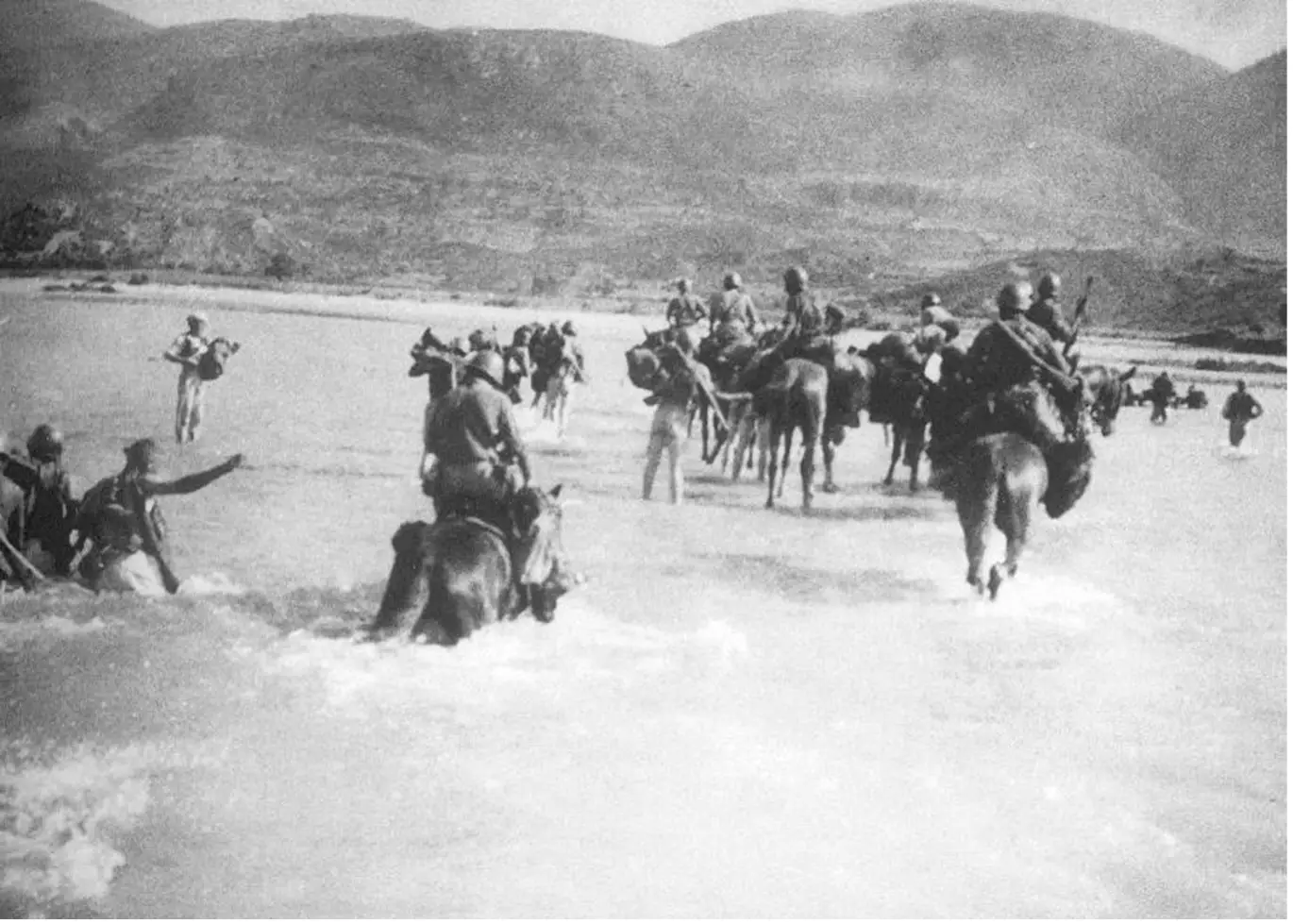
Figure 4 Italian troops crossing a river in Greece
The 9 divisions commanded by Visconti Prasca started their march in such conditions, advancing towards an enemy which was willing and ready to fight. Not surprisingly, after just a week of fighting the Italian advance was halted and the Greek forces under General Papagos started to repel the invaders. In December the front was driven back within the borders of Albania and only the German intervention in April 1941 saved the Italian forces from a total defeat.
The fascist war of aggression, which was conceived and organized with such incredible carelessness, supported by totally flawed intelligence, cost Italy 13.775 dead soldiers, 25.067 missed in action, 50.875 wounded and 12.368 frozen to death[7]. Just because a dictator was hurt in his pride.
—————-
NOTES:
[1] Under this perspective, the Italian occupation of Albania in 1939 can be indeed interpreted as a response to the Anschluss of Austria and Sudetenland. For sure the Fascists leadership felt authorize to so, as Ciano wrote in his diary.
[2] This topic has been extensively covered by professor Mauro Canali in his book “Mussolini e i ladri di regime” (2019)
[3] Which can somehow be regarded as an internal faction of the Fascist elite
[4] After the war it was found evidence that a considerable amount of money was spent by the ministry for “operations in Greece” but nothing more precise has been found
[5] He had to say this because Badoglio and the military leaders usually opposed the adventurous endeavor dreamed by Mussolini since they were aware of the short supplies and the limited military capabilities of the Italian forces.
[6] The text records of the meeting are available
[7] Official numbers of the Ministry of War
Sources
Cervi, M. (1986). Storia della Guerra di Grecia.
Ciano, G. (s.d.). Diario 1937-1943. L’Universale.
